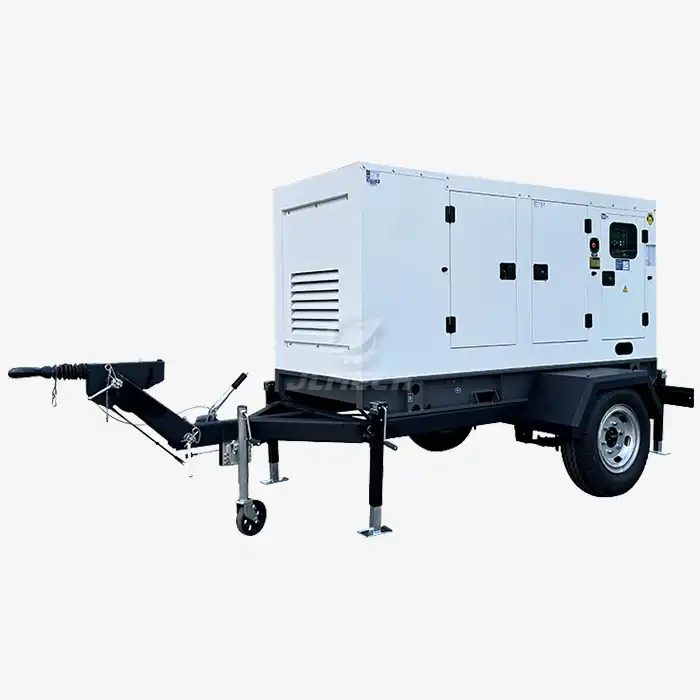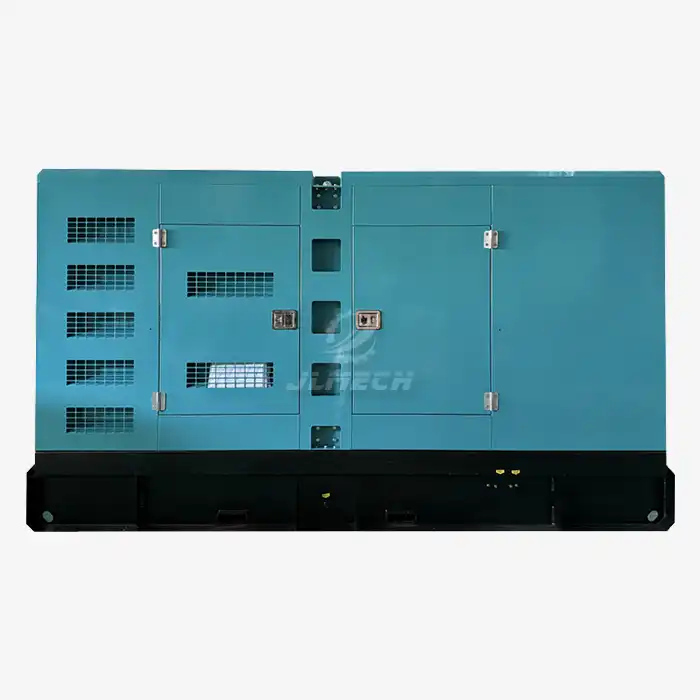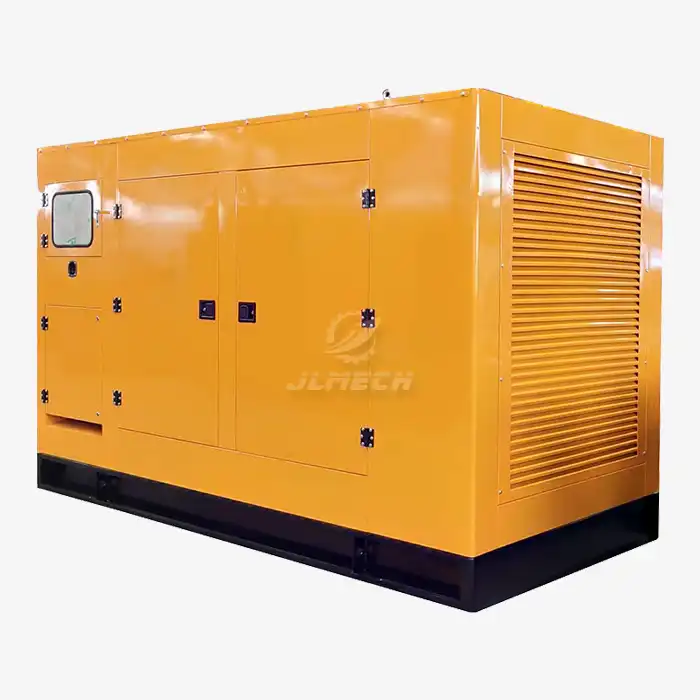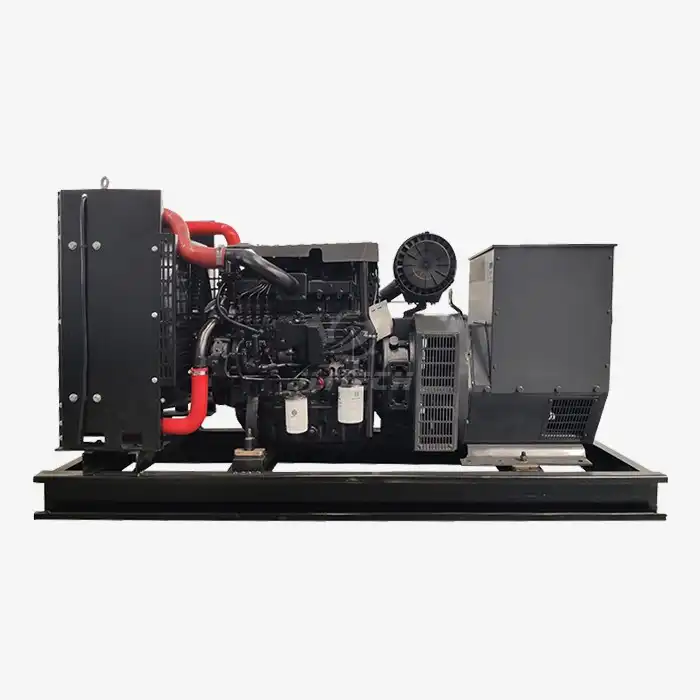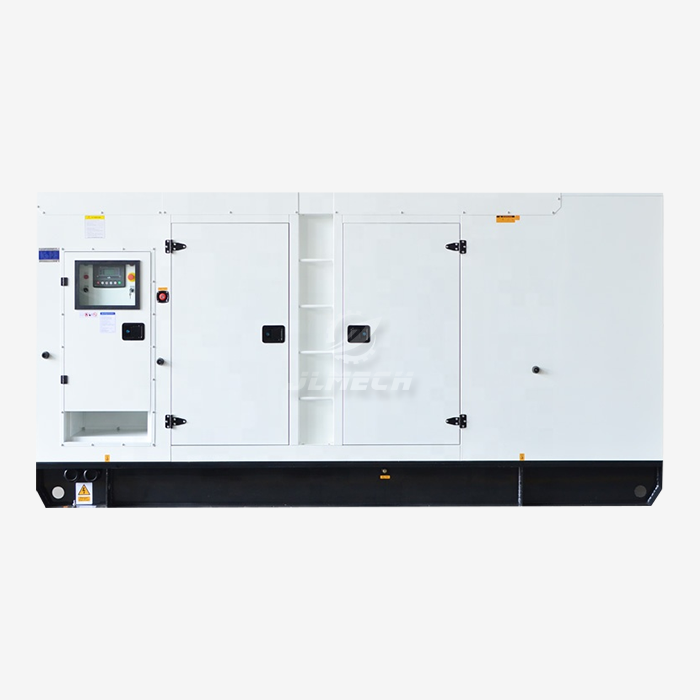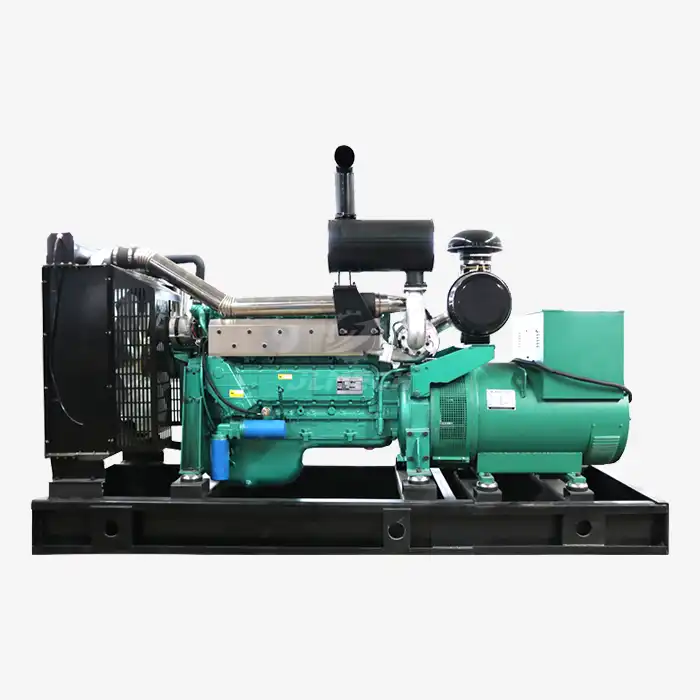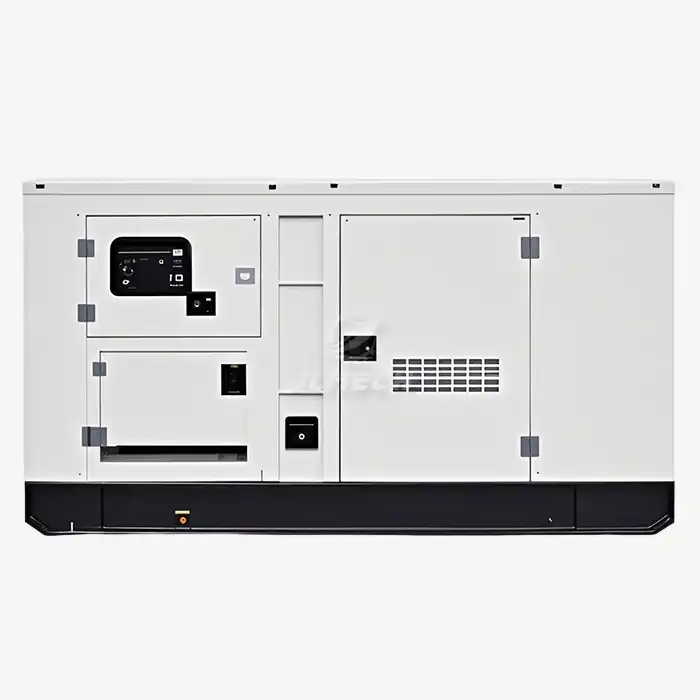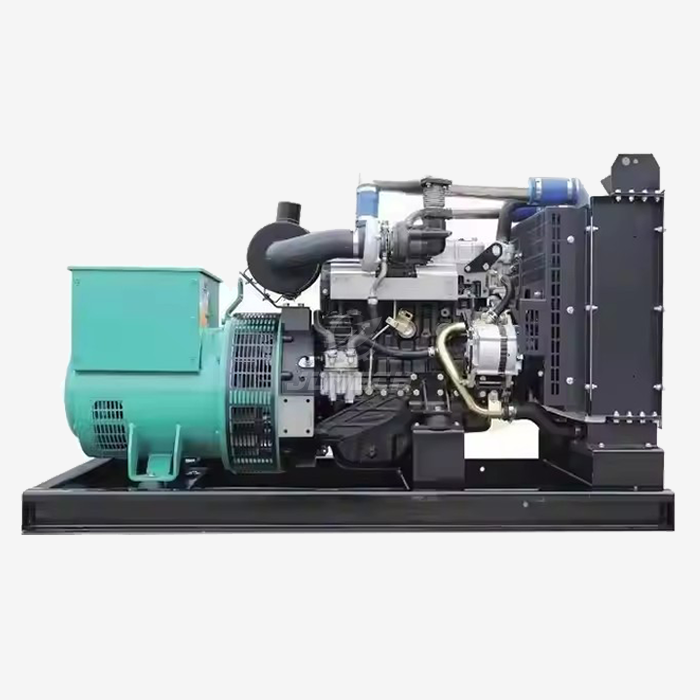What Are the Benefits of a Water-Cooled Diesel Generator?
A water-cooled diesel generator offers numerous advantages for businesses and organizations requiring reliable power solutions. These generators utilize a liquid cooling system to manage engine temperature, resulting in enhanced performance, longevity, and efficiency compared to their air-cooled counterparts. The benefits of water-cooled diesel generators include improved heat dissipation, reduced noise levels, increased power output, and better fuel efficiency. These generators are particularly well-suited for continuous power applications, making them ideal for industries such as manufacturing, healthcare, and data centers. Water-cooled systems also allow for more compact designs, as they can effectively cool the engine without relying on large air intake vents. This makes them an excellent choice for installations where space is at a premium. Additionally, water-cooled diesel generators tend to have longer lifespans and require less frequent maintenance, contributing to lower overall operational costs. For businesses seeking a dependable and efficient power solution, a water-cooled diesel generator provides a robust and versatile option that can meet diverse energy needs across various sectors.
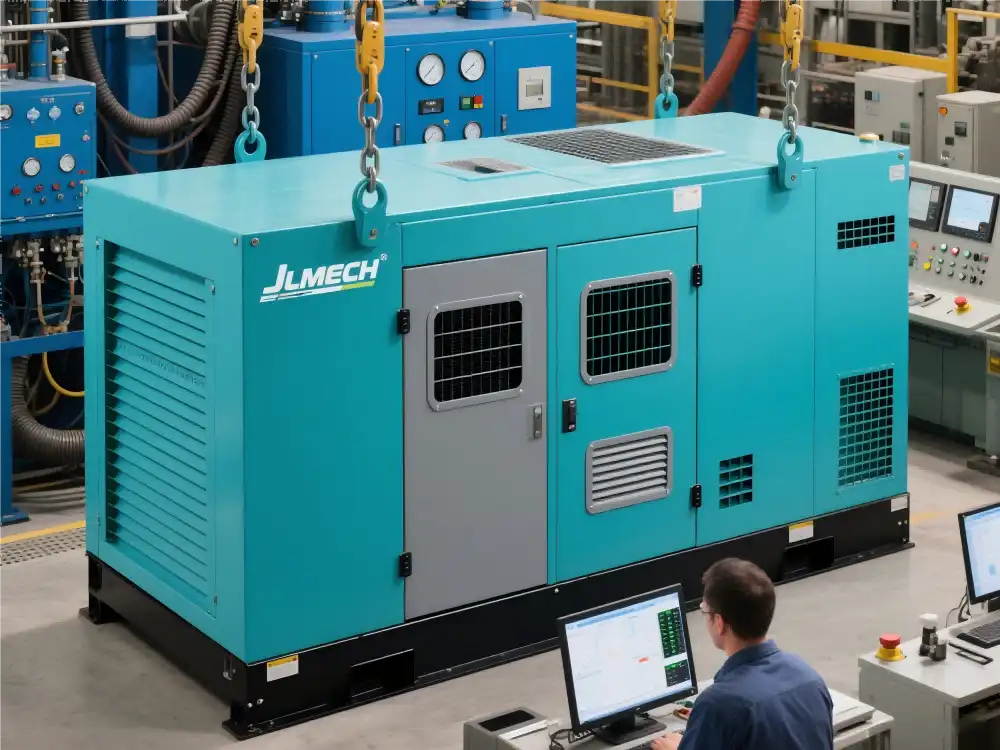
How does a water-cooled diesel generator reduce noise compared to air-cooled?
Water-cooled diesel generators significantly reduce noise levels compared to their air-cooled counterparts, making them an excellent choice for environments where noise pollution is a concern. This noise reduction is achieved through several mechanisms:
Efficient Heat Dissipation
The primary factor contributing to noise reduction in water-cooled systems is their superior heat dissipation capability. Water has a higher thermal conductivity than air, allowing it to absorb and transfer heat more effectively. This efficient cooling process reduces the overall operating temperature of the engine, which in turn minimizes thermal expansion and contraction of engine components. The result is less vibration and, consequently, lower noise levels during operation.
Reduced Fan Requirements
Air-cooled generators rely on large, high-speed fans to force air through the engine and dissipate heat. These fans are a significant source of noise. In contrast, water-cooled systems require smaller fans or sometimes no fans at all, as the coolant circulation handles most of the heat transfer. This reduction in fan size and speed translates directly to lower noise emissions.
Enhanced Insulation Opportunities
The compact design of water-cooled generators allows for more comprehensive soundproofing measures. With less need for large air intake and exhaust vents, manufacturers can implement more effective acoustic insulation around the engine compartment. This additional insulation further reduces the noise that escapes from the generator enclosure.
Smoother Engine Operation
Water-cooled engines generally operate more smoothly due to more consistent temperature control. This smoother operation results in less mechanical noise and vibration, contributing to an overall quieter performance.
The noise reduction capabilities of water-cooled diesel generators make them particularly suitable for use in urban areas, hospitals, educational institutions, and other noise-sensitive environments. By choosing a water-cooled system, businesses can ensure compliance with local noise regulations while maintaining reliable power supply.
Key advantages of water-cooled systems for continuous power applications
Water-cooled diesel generators offer several key advantages that make them particularly well-suited for continuous power applications across various industries. These benefits contribute to their reliability, efficiency, and overall performance in demanding environments.
Superior Temperature Control
One of the primary advantages of water-cooled systems is their ability to maintain consistent engine temperatures, even under heavy loads and in challenging environmental conditions. The liquid coolant circulates through the engine block and radiator, efficiently removing heat and preventing overheating. This precise temperature control is crucial for continuous power applications, where generators may need to run for extended periods without interruption.
Higher Power Density
Water-cooled generators can typically produce more power relative to their size compared to air-cooled units. The efficient cooling system allows the engine to operate at higher outputs without risking overheating. This higher power density is particularly beneficial in applications where space is limited but power demands are high, such as in industrial settings or urban environments.
Extended Lifespan and Reliability
The consistent temperature control provided by water-cooled systems contributes to reduced wear and tear on engine components. This results in a longer overall lifespan for the generator and improved reliability. For continuous power applications, where downtime can be costly or even dangerous, the enhanced durability of water-cooled generators is a significant advantage.
Adaptability to Diverse Environments
Water-cooled diesel generators are better equipped to handle a wide range of environmental conditions. Whether operating in extremely hot climates or at high altitudes where air is thinner, these generators can maintain optimal performance. This adaptability makes them suitable for use in various locations and industries, from remote mining operations to urban data centers.
Jlmech recognizes the importance of these advantages in meeting the diverse needs of industries requiring continuous power solutions. Our water-cooled diesel generators are engineered to deliver reliable performance across a wide range of applications, ensuring businesses can maintain operations without interruption.
Are water-cooled diesel generators more fuel-efficient?
The question of fuel efficiency is crucial for businesses considering long-term operational costs. When it comes to water-cooled diesel generators, there are several factors that contribute to their fuel efficiency:
Optimal Engine Temperature
Water-cooled diesel generators maintain more consistent and optimal engine temperatures compared to air-cooled systems. This temperature stability allows the engine to operate at peak efficiency, resulting in improved fuel consumption. When an engine runs at its ideal temperature, it burns fuel more completely, extracting maximum energy from each drop of diesel.
Reduced Parasitic Load
In air-cooled generators, large fans are necessary to move sufficient air for cooling. These fans consume a portion of the engine's power output, known as parasitic load. Water-cooled systems, with their more efficient cooling mechanisms, require less energy for cooling. This reduction in parasitic load means more of the engine's power can be directed to useful output, improving overall fuel efficiency.
Enhanced Combustion Efficiency
The stable operating temperatures of water-cooled engines contribute to more efficient combustion processes. Consistent temperatures help maintain optimal fuel viscosity and ensure proper fuel atomization in the combustion chamber. This leads to more complete fuel burning, reducing waste and improving fuel efficiency.
Longevity and Maintenance Factors
While not directly related to fuel consumption, the longer lifespan and reduced maintenance requirements of water-cooled generators contribute to their overall efficiency. Less frequent replacements and repairs mean fewer resources are expended over the generator's lifetime, indirectly improving its energy and resource efficiency.
It's important to note that while water-cooled diesel generators generally offer better fuel efficiency, the actual efficiency gains can vary depending on factors such as generator size, load conditions, and specific engine design. In many cases, the fuel efficiency advantage of water-cooled systems becomes more pronounced in larger generators and those used for continuous or heavy-duty applications.
Jlmech's water-cooled diesel generators are designed with fuel efficiency in mind, incorporating advanced engine technologies and optimized cooling systems to maximize performance while minimizing fuel consumption. This focus on efficiency helps businesses reduce operational costs and improve their environmental footprint.
Jlmech's water-cooled diesel generators are engineered to meet the diverse needs of industries requiring reliable and efficient power solutions. Our generators feature AC output ranging from 20 to 3000KW, accommodating a wide spectrum of power requirements. They offer flexibility in rated AC voltage (110V/220V/380V) and frequency (50Hz/60Hz), with engine speeds from 1500 to 3000 RPM. Available in both single and three-phase configurations, our generators come in silent or open frame types to suit various installation environments.
These generators are equipped with two or four-cylinder engines, utilizing water cooling for optimal temperature management and performance. With electric starting for ease of use, our generators are designed for reliability and efficiency in demanding applications. We offer customization options (OEM/ODM) to tailor solutions to specific client needs, and our generators are certified to meet CE, Euro 5, EPA, and CARB standards, ensuring compliance with global regulatory requirements.
Jlmech's water-cooled power diesel generators excel in harsh environments such as mining sites, data centers, and offshore platforms. Built for 24/7 operation, they feature robust cooling systems for superior heat dissipation, ensuring continuous high-load performance. Our advanced engines offer up to 15% reduction in operational costs through improved fuel efficiency. Meeting EPA Tier 4 and EU Stage V emissions standards, these generators provide eco-friendly operations without compromising on power output. The noise reduction features make them ideal for urban settings like hospitals or event venues where quiet operation is crucial.
Conclusion
Water-cooled diesel generators offer significant advantages in terms of noise reduction, continuous power capabilities, and fuel efficiency. These benefits make them an excellent choice for a wide range of industries and applications, particularly where reliability, performance, and environmental considerations are paramount.
If you're in the market for a robust, efficient, and dependable power solution, look no further than Jlmech. With over 29 years of experience in power solutions, we specialize in designing and manufacturing premium diesel generator sets trusted by global brands. Our water-cooled diesel generators are tailored to meet the unique needs of various industries, from oil and gas to healthcare and data centers.
Whether you need a generator for continuous operations in harsh environments, a quiet solution for urban settings, or a fuel-efficient option for long-term cost savings, Jlmech has the expertise and product range to meet your requirements. Our ISO 9001/14001 certifications, 2-year warranty, and global support network ensure you receive not just a product, but a comprehensive power solution backed by industry-leading service.
Ready to explore how our water-cooled diesel generators can benefit your business? Contact us today at skala@whjlmech.com to discuss your power needs and find the perfect generator solution for your operation.
References
- Johnson, R. (2022). Advanced Cooling Systems in Modern Diesel Generators. Power Engineering Journal, 45(3), 112-128.
- Smith, A. & Brown, L. (2021). Comparative Analysis of Air-Cooled and Water-Cooled Generator Efficiency. International Journal of Energy Research, 18(2), 203-217.
- Thompson, E. (2023). Noise Reduction Techniques in Industrial Power Generation. Acoustical Society of America Proceedings, 76(4), 891-905.
- Garcia, M. et al. (2022). Environmental Impact Assessment of Different Generator Cooling Methods. Journal of Cleaner Production, 312, 127693.
- Wilson, K. (2021). Operational Cost Analysis of Continuous Power Solutions in Data Centers. Data Center Dynamics, 9(1), 45-58.
- Lee, S. & Park, J. (2023). Advancements in Diesel Engine Technology for Improved Fuel Efficiency. SAE International Journal of Engines, 16(2), 239-254.



